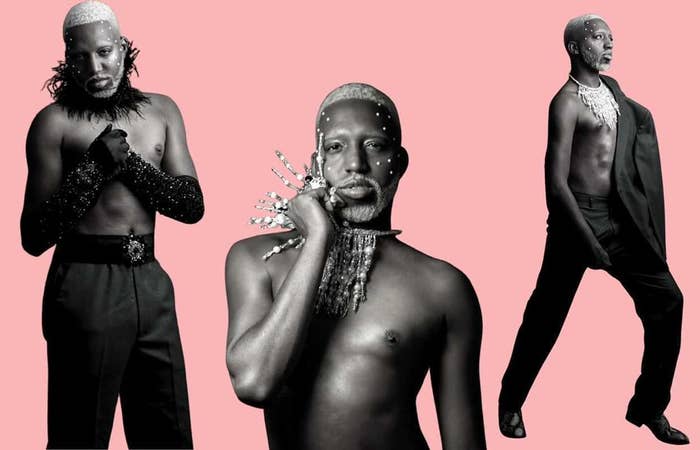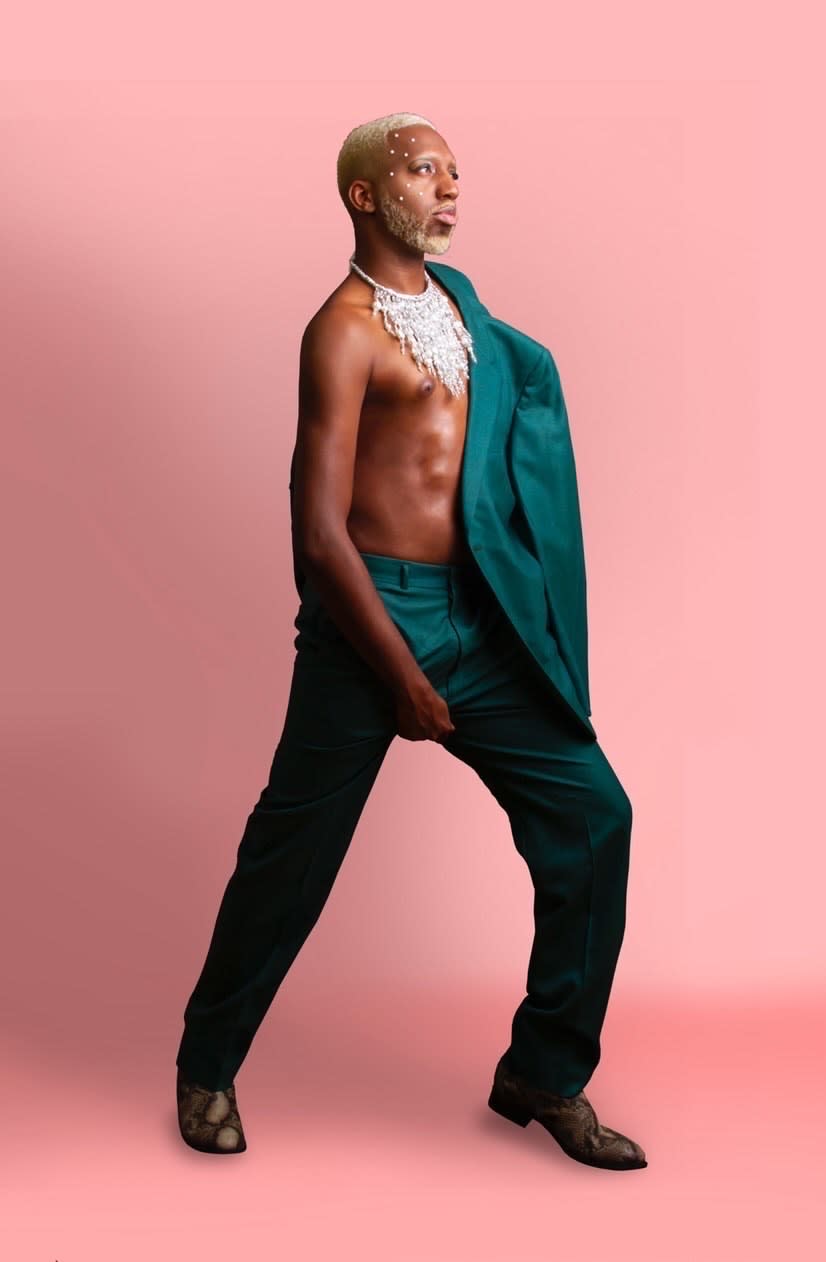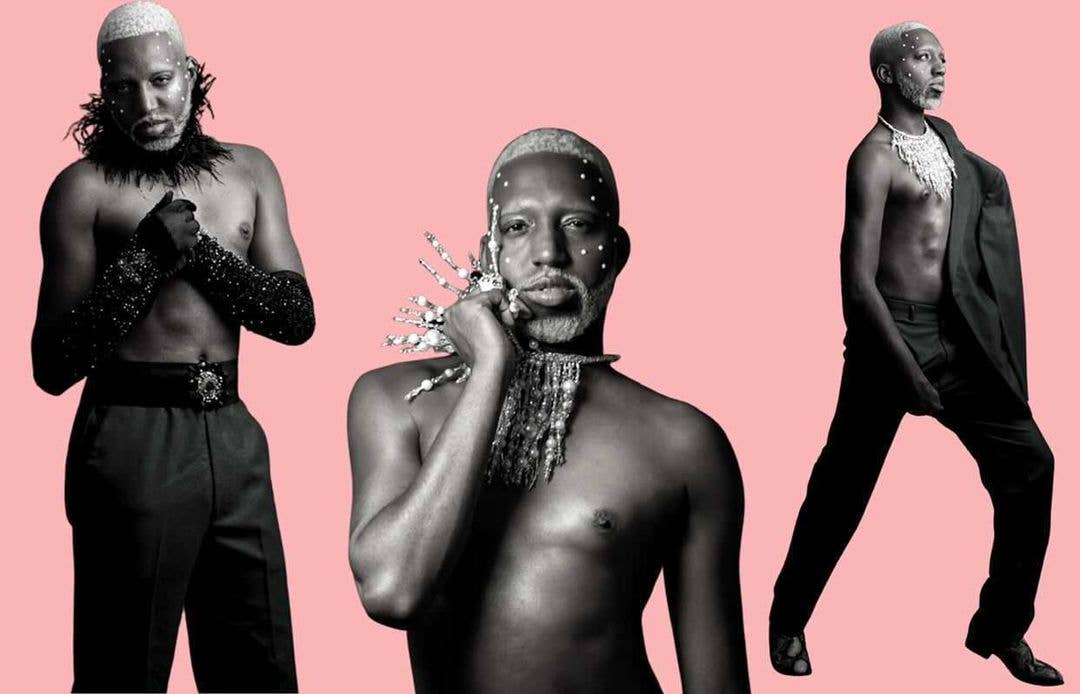
Toronto’s IAMREBELWILL is fearlessly embracing who he truly is on his new album RebelFuturism. But the artist hasn’t always had that sense of freedom.
Over the years we have seen time and time again artists purposely marketing themselves in a way that will appeal to a larger market, but when the need for popularity and authenticity clash, what happens next?
IAMREBELWILL found himself in this dilemma in 2020. The pigeonholed artist initially wanted to be a pop singer, but after conversations with his team, they decided that R&B was the better route for him. Though electropop was his speciality, he was encouraged by his team to present himself as macho, “gangster” and “thug-like.”
After being asked to gain 75 pounds of muscle mass and to bleach his skin, he was eventually sold on the idea of embracing his inner “Chris Brown,” despite his resistance to resemble someone with whom all he had in common was his skin colour and inch-long coily hair.
“I felt so insecure, and I felt like a fraud,” he said recollecting on his 2016 performances. “As much as they said it was good performances, and so on, so forth, I could tell that they weren’t connecting because they’re just something that wasn’t authentic about it.”
Although IAMREBELWILL knew that this image did not match his vision as a pop artist, making him a mainstream artist was his team’s priority. Through his team’s lens, commodifying his appearance was the only way to achieve their goals.
“There’s definitely a blueprint that we haven’t yet broken in terms of when they say it’s ‘Black or urban music,’ and that’s definitely the stereotype that they were trying to follow.”
“This image was what they were going to sell, and nothing else,” he says. “In hindsight, I don’t blame them. How can you foresee what’s happening now … opposed to five years ago? This was career-ending.”
IAMREBELWILL explains that hypermasculinity was celebrated at the time, and contributed to growing his audience. He knew that this image was the socially acceptable way to get him to his dreams.
“[I told myself] that this is a business, and this is how the business works,” he said. “There’s definitely a blueprint that we haven’t yet broken in terms of when they say it’s ‘Black or urban music,’ and that’s definitely the stereotype that they were trying to follow.”
Over the past decade, there have been more and more artists opening up about their sexuality. In 2013, Troye Sivan came out as gay in one of his YouTube videos. In 2019, during an interview about body positivity with actress Jameela Jamil, Sam Smith shared that he is non-binary. Later that same year Lil Nas X publicly announced in a tweet that he is gay. From Tony Jackson and David Bowie, to Elton John, queer artists have been influencing culture via their unique style and queer pride for decades.
However, due to societal norms, gaining acceptance among fans and industry institutions has still been a challenge. Cass Beau, a Toronto-based music producer and songwriter, has witnessed that “the majority of people who hold positions of power in the music industry do not understand the richness that varies within the queer identity.”
“People in positions of power in the music industry are still predominantly wealthy heterosexual men, and I think that is part of the structural basis that enforces artists to commodify their identity into something understandable at a very level of understanding and cryptologic,” they said.
Katrina Lopes, founder of KL Management, an artist management company, adds that traditionally speaking, record labels are “going to try to make the artist whatever they think is going to generate the revenue.” When one of her female artists decided to write songs about her love interest using ‘she/her’ pronouns instead of ‘he/him,’ they experienced some resistance.
“That was a big step for her,” Lopes said, ruminating about her artist. “It’s crazy to say, but we got a little bit of pushback from the labels.” Although artists are still experiencing these pushbacks, music lovers and creators like Beau acknowledge these “seismic” changes but are optimistic about the future of music.
“When culture follows these changes, it just makes more space for people to be themselves,” they said. “It just makes it easier to build an audience without those privileged and powerful people at the helm of your career.”

“I feel naked. But more so just overwhelmed that people are slowly but surely getting to see me.”
Whether they are advocating or simply believe in gender fluidity, more and more male artists such as Kid Cudi, Todrick Hall, Jay Will (a.k.a. Kandie), and Harry Styles have been pushing the envelop, challenging heteronormative ideas by wearing skirts, earrings, accessories, makeup, dresses, or even rocking a variety of hair colours.
Matt Maw, founder of Red Music Rising, a holistic record label and artist management company for Indigenous artists, is seeing the same evolution. He shares that when he is selecting artists to be a part of his label, he no longer has to consider how their sexual orientation will be received or perceived within the sectors of the industry.
“It feels like [I’m in] a privileged position, as a queer person, to be able to say that because that obviously hasn’t been the case for so long, but it’s kind of liberating at the same time,” he says.
Lopes perpetuates this progressive shift within her management company by organizing her artists’ teams to have similar truths.
“In the music industry, things change so quickly, and marketing is really fucking hard,” she says. “You need to know who your audience is, you need to know who the artist is, and how could you possibly, if you are not sharing some similar truths in your story?”
Today, IAMREBELWILL has completely revamped his team, and surrounds himself with people who share similar experiences.
“The team that I’m building is authentic people who believe wholeheartedly in my cause, who have one way or another faced adversity,” he said. “They understand the meaning behind the message that we’re really trying to move forward with.”
No longer feeling the need to overly explain himself to his team, RebelFuturism is IAMREBELWILL’s most vulnerable album yet.
“I feel naked,” he says, reflecting on the project. “But more so just overwhelmed that people are slowly but surely getting to see me.”
The electropop project shares stories about his past marriage, facing suicidal thoughts and previous lovers. But these experiences IAMREBELWILL couldn’t have shared without the help from his co-writer and producer, Tafari Anthony. Together, they created this candid EP with ease and comfort.
“We have similar upbringings and in terms of our Caribbean backgrounds, being Black, being queer. He (was) like, ‘What do you want to talk about?’ And I’m just like, ‘You know what, I want to talk about fuckboys. He’s like, ‘Let’s do it. Let’s do it!’”
As IAMREBELWILL embraces his newly found freedom on and off stage, and thanks the time he had off during the 2020 quarantine lockdown for getting him here. “It got me to sit down and reflect on what I want,” he said.
During the pandemic, he’s asked himself questions like, “Am I doing this because I want to be famous and going to do whatever it takes to be ‘famous,’ or is it because I actually authentically love this craft that is music?”
After moving to Toronto to pursue his dreams wholeheartedly, the charismatic artist knew that without making this marketing alteration, it would be much harder for him to pursue his dreams—having to justify who he is pretending to be constantly.
“I want to look back five-to-ten years from now and think, I did not sell myself short.”
Today, IAMREBELWILL is passionate about being the representation he didn’t see when he was younger, and excited to be filter-free.
“We’re human. I think once you take away all those labels . . . we all have a story that is important to tell,” he says.



